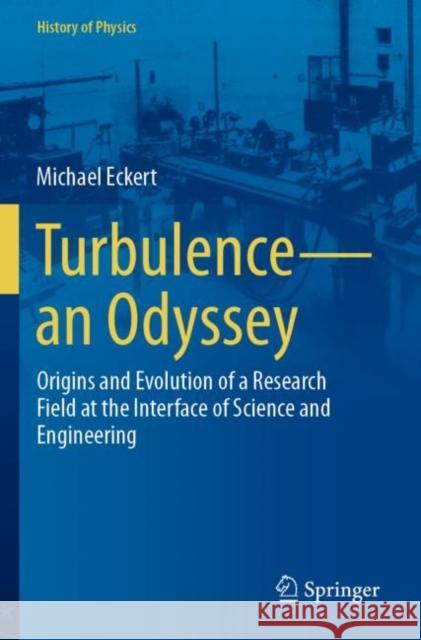Turbulence—an Odyssey: Origins and Evolution of a Research Field at the Interface of Science and Engineering » książka
Turbulence—an Odyssey: Origins and Evolution of a Research Field at the Interface of Science and Engineering
ISBN-13: 9783030914615 / Angielski / Miękka / 2023 / 208 str.
Turbulence—an Odyssey: Origins and Evolution of a Research Field at the Interface of Science and Engineering
ISBN-13: 9783030914615 / Angielski / Miękka / 2023 / 208 str.
(netto: 575,06 VAT: 5%)
Najniższa cena z 30 dni: 578,30
ok. 16-18 dni roboczych.
Darmowa dostawa!
Turbulence is a research field where high expectations have met with recurrent frustration. It is a common perception among physicists, mathematicians and engineers that there is a "big mystery" behind the phenomenon of turbulence. Its history has also remained anything but well researched. Unlike topics such as quantum theory, which began to attract physics historians as long as fifty years ago, turbulence has - until now - received only little professional historical investigation.In this book, which complements his earlier SpringerBrief "The Turbulence Problem", the author sketches the history of turbulence from the vantage point of its roots (Part I), the basic concepts (Part II) and the formation of a scientific community that regarded turbulence as a research field in its own right (Part III). From this perspective turbulence research appears to undertake an odyssey through uncharted territories. The book follows this development up until a conference in Marseille in the year 1961, which marked the inauguration of turbulence in the words of its organizer as “a new science”. The epilogue contains some observations about turbulence research since 1961. This book provides a rich source of information for all those interested in the history of this major field of basic and applied science.
Turbulence is a research field where high expectations have met with recurrent frustration. It is a common perception among physicists, mathematicians and engineers that there is a "big mystery" behind the phenomenon of turbulence. Its history has also remained anything but well researched. Unlike topics such as quantum theory, which began to attract physics historians as long as fifty years ago, turbulence has - until now - received only little professional historical investigation.In this book, which complements his earlier SpringerBrief "The Turbulence Problem", the author sketches the history of turbulence from the vantage point of its roots (Part I), the basic concepts (Part II) and the formation of a scientific community that regarded turbulence as a research field in its own right (Part III). From this perspective turbulence research appears to undertake an odyssey through uncharted territories. The book follows this development up until a conference in Marseille in the year 1961, which marked the inauguration of turbulence in the words of its organizer as “a new science”. The epilogue contains some observations about turbulence research since 1961. This book provides a rich source of information for all those interested in the history of this major field of basic and applied science.











